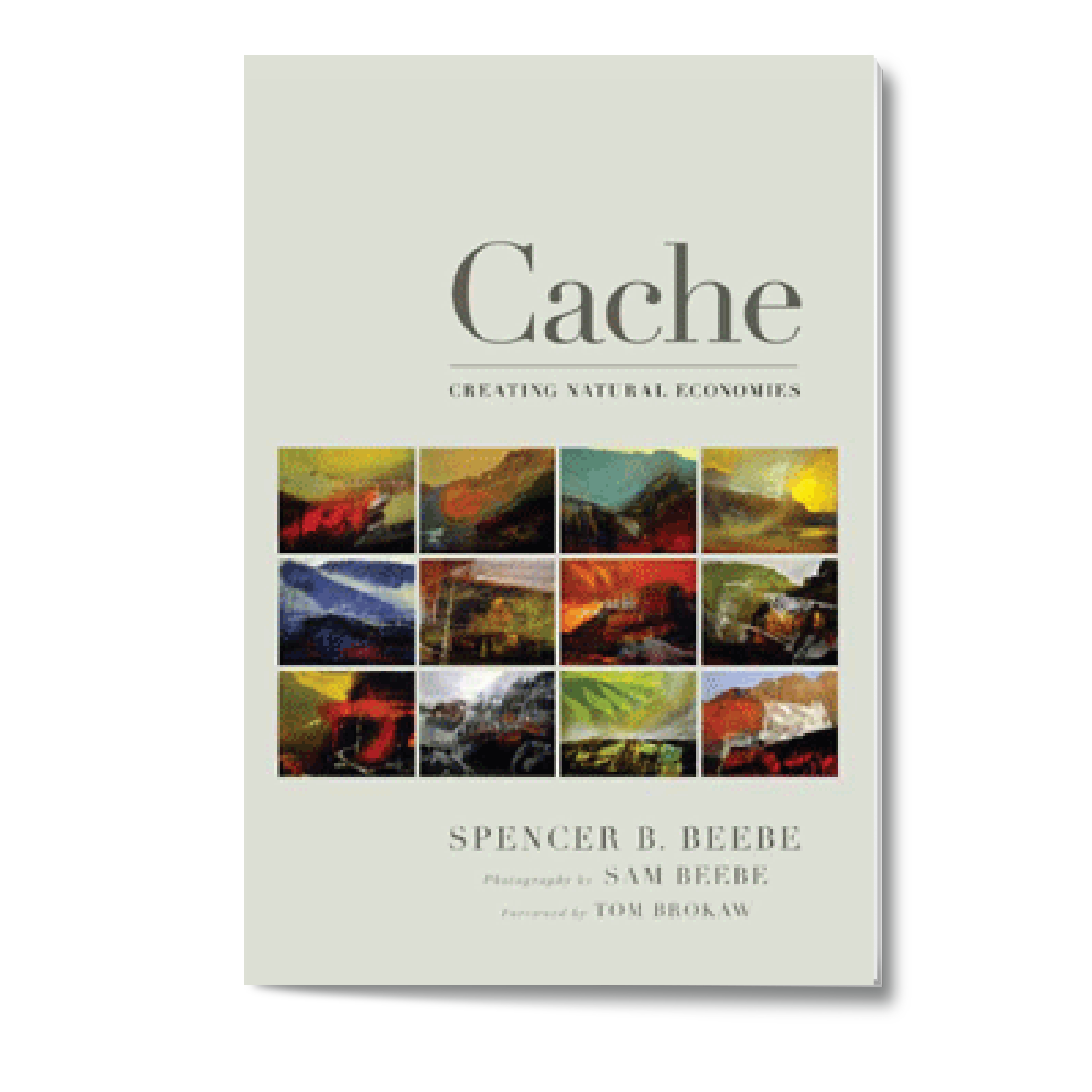Cache: Creating Natural Economies
Spencer B. Beebe (author), Sam Beebe (photographer)
Ecotrust, 2010
252 pages
It’s a very good thing I don’t review books professionally any more. I have had this one (signed by Sam Beebe himself, even) for something like three years, and it just now made it to the top of the to-read stack. Not for lack of it being a good book, but like most nerds I have piles of books that I haven’t read yet and I’m chewing my way through as fast as I can (which isn’t very fast these days).
Thankfully, it’s still available, and well worth the wait. It fits right in with one of my pet hypotheses–that we’ve spent hundreds of years developing our current economic structure without taking the effects on nature into consideration, and that if we can’t overhaul the system entirely we can at least re-engineer it to be more ecologically friendly. This is not a book for people who want to change the whole thing entirely; it’s a book for those who are willing to take the current capitalistic system we have and subvert it for the powers of good.
The author, Spencer Beebe, has quite the environmental pedigree. He got his start with the current juggernaut of “let’s buy land to save it”, the Nature Conservancy, then co-founded Conservation International, which helps communities worldwide both gain economic freedom and protect their environment. He then took his work a step further by founding Ecotrust, which again works to create sustainable economies–in all senses of the term–but on a more local basis. (They’re right here in Portland, even!)
Cache is part autobiography, part challenge. It’s a fantastic behind-the-scenes of Beebe’s decades of work in the environmental movement, as well as some of the shortcomings of efforts he’s been involved with. But it’s also a story of his attempts to improve on those shortcomings, rather than simply rest on his laurels. The challenge is for the reader: the business professional is called to reconsider their company’s practices in relation to the environment; the layperson is invited to consider how our world could look differently if our money really was greener.
I do have to also mention Sam Beebe’s photography. You’d expect this book to be full of a few black and white photos and a bunch of graphs. Instead what we get are photos illustrating events and ideas, wrought in full color. Some of them are fairly official-looking–photos of Ecotrust’s Jean Vollum Natural Capital Center (during and after renovation), or people that the author worked with over the years. But then there are delightful surprises–four of the Beebe children on a tiny little raft floating down a stream no wider than my porch, with Mom keeping an eye out. Those of us who got our love of nature early on will recognize the importance of that sort of picture in this story.
To be honest, this book got me really excited. I have a very teeny tiny business, with just one person (me). But I am a part of the American economy, and the fact that someone out there is not just dreaming change but actively making it on a level that feels so far away from my ability to act just makes me heartened. I know that a lot of my left-leaning fellows want to see a complete overhaul of the system. But as long as that system is in place and stubbornly refusing to shapeshift into something else, I’m okay with people making use of it to better the world, and maybe even draining off a bit of the poison that’s infected it while they’re at it.

